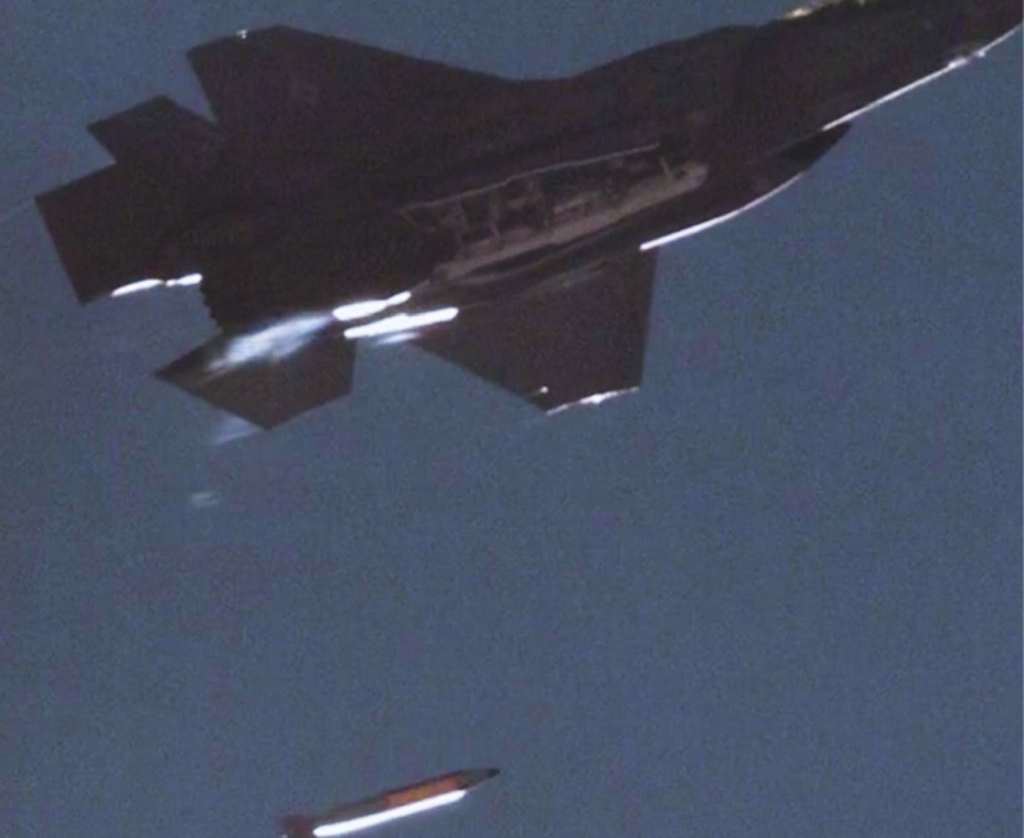Even as the Department of Defense (DoD) announces the development of a new variant of the B61 nuclear gravity bomb, the US House Committee on Armed Services has criticised US nuclear policy as "running in place", against the backdrop of a "full-on" arms race by Russia and China.
The DoD said in a statement on 27 October that the Department of Energy's National Nuclear Security Administration (NNSA) would produce the B61-13 gravity bomb for delivery by modern aircraft, anticipated to include strategic bombers.
The B61-12 was test dropped from an F-35 in December 2020, marking the first release from an internal bomb bay travelling beyond the speed of sound. It was intended to replace all other gravity bombs including the B83-1, and reduce that element of the nuclear stockpile by 50%, according to a report from the Federation of American Scientists.
The decision to develop a new nuclear gravity bomb appears to be the product of internal political debate in Washington over the substitution of the earlier gravity bomb system, the B83-1, for a newer weapon, although the DoD release does not call out the B83-1, instead noting that the B61-13 would "replace some of the B61-7s in the current nuclear stockpile and have a yield similar to the B61-7, which is higher than that of the B61-12.”
Under the Obama administration, the B83-1 was slated for retirement, with the expectation of the B61-12 taking its place, before being rescued during the Trump administration. Under the Biden Presidency its fate has turned again, with the 2022 Nuclear Posture Review stating that the B83-1 will be retired due to its increasing limitations and rising maintenance costs. Congressional Republicans opposed the move during a number of hearings in May 2022.
In a statement from the House Committee on Armed Services on 27 October 2023, Chairman of the House Armed Services Committee, US Representative Mike Rogers, and the Ranking Member of the Senate Armed Services Committee, US Senator Roger F Wicker, welcomed the development of the B61-13 for providing more flexibility for commanders, particularly in the Indo-Pacific and Europe, as it provides the Air Force with a better capability for reaching “hardened and deeply-buried targets” but were critical of the overall nuclear posture, noting that the B61-13 is “not a long-term solution”.
The Department of Defense believe the new B61-13 would deliver options against some harder and wider area targets and strengthen the deterrence of adversaries and the assurance of allies and partners.
"The B61-13 represents a reasonable step to manage the challenges of a highly dynamic security environment," said Assistant Secretary of Defense for Space Policy John Plumb. "While it provides us with additional flexibility, production of the B61-13 will not increase the overall number of weapons in our nuclear stockpile."
The B61-13 would build upon the existing production capabilities that support the B61-12, according to the DoD, incorporating the advanced safety, security and accuracy features of the B61-12.









